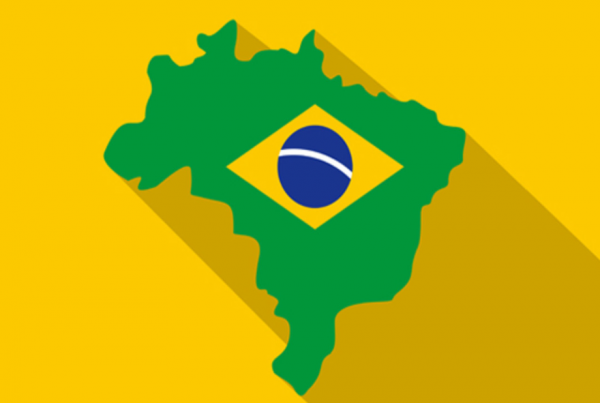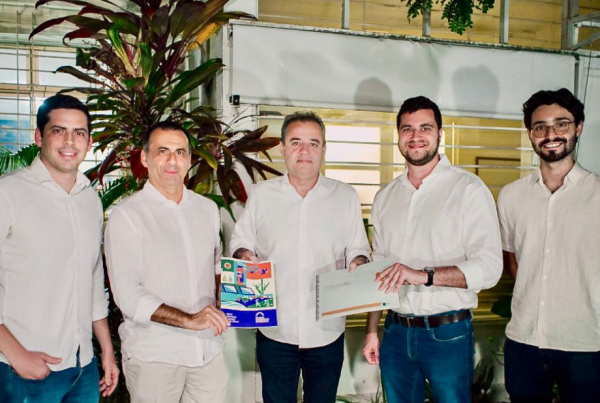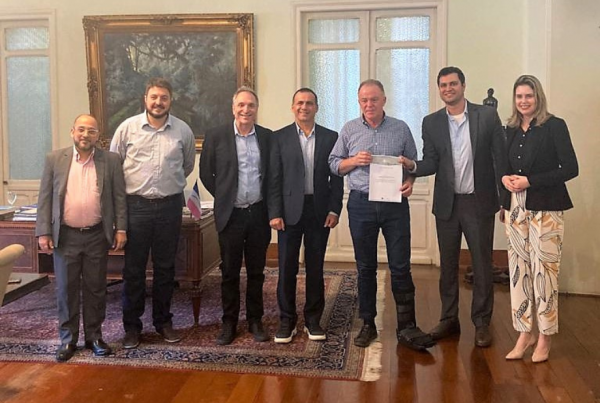Imagine a world in which different political clans struggle to increase their power while ignoring a threat never seen before – and which can annihilate their societies without much regard for man-made boundaries. The above narrative may be an introduction for the upcoming eighth and final season of Game of Thrones, in which the fate of Westeros will be sealed when the army of the dead finally passes through “The Wall.” It could also be an accurate description of the current state of world politics, where names like Donald Trump and Jair Bolsonaro wage war against multilateralism at a time when we need it most. Political distractions like billionaire walls and celebrating past dictatorships occupy their agenda, while the real – and potentially irreversible – threats posed by climate change are already in our backyards.
While in the HBO show, the Houses fail to face the great danger that Westeros has already faced, in real life the scenario is not much different. Those who have historically been the main contributors to climate change are not taking adequate actions to offset it. In turn, emerging countries like Brazil and China, today’s leading emitter of greenhouse gases, use the weak response from developed countries as an excuse to postpone their own actions. While the principle of common but differentiated responsibilities strengthens the position of emerging countries, they will also be losers if we fail to tackle climate change as a global community. Perhaps the metaphor of white walkers makes it easier to understand why the prisoner’s dilemma strategy of maximizing individual benefits is an illusion. If Westeros loses the war against the White Walkers, there will be no throne for Cersei or anyone to sit on.
So why is it so difficult for most Westeros to respond to the impending catastrophe coming from north of the Wall? You could say that it is hard to understand something that you have never seen and that contradicts most of the past experiences of your ancestors. Perhaps this was the reason why Jon Snow risked his life and the future of Westeros to capture a “living” White Walker (is there such a thing)? Like Don Quixote, or a medieval activist in the series, Snow believes he can overcome political inertia by literally throwing the problem in the faces of decision-makers. After all, who would still deny the existence of a creature that almost bit itself?
So how would people react when there is no longer any doubt about the existence or danger of white walkers? There are three basic responses, all of which have an analogous version to the current climate change crisis:
1) The problem-solving approach: maybe you didn’t believe in white walkers (or climate change) before or you underestimated your risk. However, recent events have forced you to rethink your position and everything that you considered important until now. This happened with Daenerys Targaryen, who interrupted her quest for the throne to deal with a more pressing and irreversible issue. Jaime Lannister also breaks his unwavering loyalty to his sister Cersei and joins his former enemy to fight for everyone’s survival. Jon Snow goes even further and teaches the enemy how to kill a white walker, revealing a military secret for the common good. In real life, actions like Elon Musk’s release of all Tesla patents remind us that there is no competitive advantage in a troubled world.
2) The choice to give up: just like the characters mentioned above, Euron Greyjoy had his worldviews and priorities shaken by his encounter with a White walker. However, he did not choose to join the coalition led by Daenerys. After Jon Snow confirms that the White Walkers cannot swim, Euron decides to abandon Cersei and everyone else and return to his island, where he believes he will be safe when the army of the dead arrives. He even advises Daenerys to do the same, saying that the two of them could rule the world when the crisis is over. Would there be something to rule by then? Back to multilateral cooperation, countries like the United States or Brazil may have less at stake than Tuvalu and other Pacific islands, but it is an illusion to believe that they would be immune to the impacts of climate change. No one will.
3) The cold never bothered me anyway: Cersei may never have watched Frozen, but she also believes that she can maintain – or even increase – her power while the rest of the world freezes to death. She is not only not joining the resistance, but is also planning to attack them to maximize her short-term gains. Countries like Russia and Saudi Arabia also block international cooperation for their fossil fuel industries. While these industries offer short-term gains to your GDP, fossil fuels will not protect your population from the growing effects of climate change.
Another similarity between white walkers and climate change is the unpredictability of their attacks. Both threats are not something that humans are used to, and there is not much time left to prepare for this. After almost 25 years of discussing what to do at the annual UN Conferences (COPs), world leaders have been pressured by school children to stop talking and start acting. Brazil has even resigned from the Presidency of the next Conference of the Parties (COP), scheduled to take place this year in the country, thus closing the door to new investment and cooperation opportunities. The shows exemplify what can happen to us if we don’t listen to the children’s warning.
When Daenerys lost one of her dragons to the Night King, she intensified the impact of the Army of the Dead, changing the whole scenario in a few minutes (and perhaps dooming everyone else). Likewise, we also face the risk of abrupt climate change: a future level of warming that would bring the global climate to a critical point, imposing unforeseen and irreversible changes on physical systems. There are various uncertainties about what this level is for different processes, but the risks increase more and more for temperatures above 1-3C.
Climate change, like the white walkers in Game of Thrones, is something very big, complex, and outside the concerns of our daily lives. To really understand, you have to see and feel for yourself. Therefore, Youth Climate Leaders (YCL) has designed a unique experience – the 2019 YCL Immersion: an intercontinental expedition where young people can learn more about climate change in theory, understand it in practice, and work on practical projects with other young people to start their careers as climate leaders. Like Jon Snow, our goal is to take fearless explorers on an adventure where they can see for themselves the impacts of and responses to climate change, helping us document it all and spread the word to our Westeros. In a much safer way, of course.
Fans all over the world are eagerly awaiting the premiere of the eighth and final season of Game of Thrones, which will be released this Sunday (April 14). The deadline for YCL 2019 Immersion applications is also near, so send in your applications before you watch the Game of Thrones season 8 premiere!




